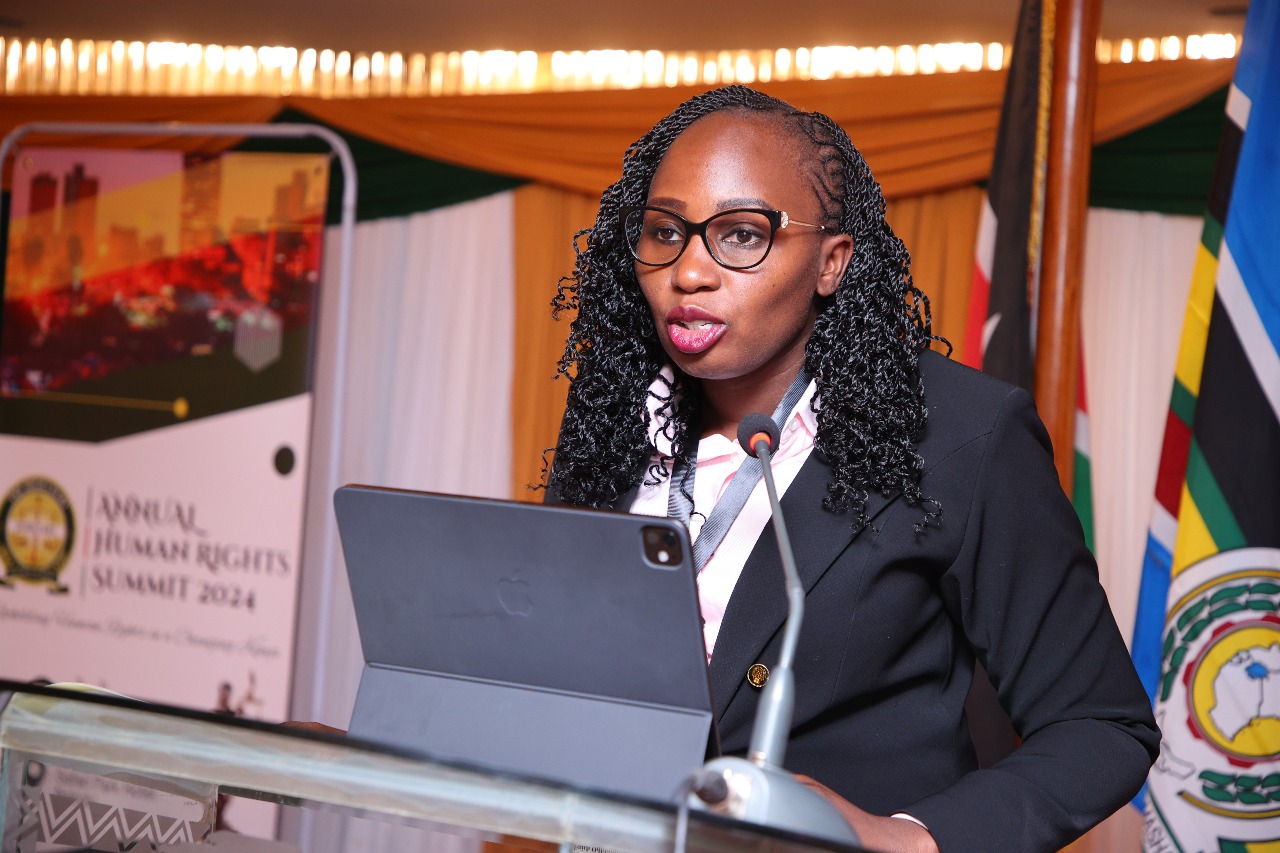
Top 10 counties with most filed SGBV court cases
Sexual and gender-based violence(Financial Year 2023/24)
Faith Odhiambo has been at the forefront of condemning femicide and demanding justice for victims and their families
In Summary

Audio By Vocalize

In October 2024, the National Police Service assured Kenyans of its commitment to addressing and investigating all femicide-related cases in the country.
The service admitted that there has been a sharp rise in cases of murder and manslaughter.
However, just 22 days
into 2025, at least two femicide cases have already been reported.
This is despite the heightened awareness generated during the 16 Days of Activism against Sexual and Gender-Based Violence, which ran from November 25 to December 10, 2024.
To address femicide more comprehensively, the Star secured an exclusive Q&A with the President of the Law Society of Kenya (LSK) Faith Odhiambo.
Odhiambo has been at the forefront of condemning femicide and demanding justice for the victims and their families.
Q: After the 16 Days of Activism against SGBV, what next?
A: The 16 Days of Activism is a significant campaign in anti-SGBV efforts.
However, SGBV is not a periodic or seasonal problem, it is a historic, progressive and persistent problem.
That makes it unsustainable to meaningfully address this endemic problem through occasional, piecemeal programs.
As a country and society at large, there is a need to find long-term approaches to tackling this menace.
Q: What are some of the strategies needed to address SGBV?
A: The first step in my view is institutionalising continuous awareness campaigns.
This will lead to a seamless transition from short-term activism to long-term community sensitisation programs that engage local leaders, schools, and faith-based organizations to challenge harmful norms and practices.
Further, there will be a source of accountability for any gaps that persist even after such institutionalisation.
As things stand, there is a fragmented set up of government departments and NGOs, each with separate priorities, doing their work to address the issues.
Finding consensus and a common working ground for all these groups can be problematic.
As such, a consolidated framework is the most ideal.
A: Strengthening existing support systems
Other than that, there is a need to strengthen existing support systems both strategically and operationally.
This can be achieved by expanding resource bases, training personnel, promoting sensitisation campaigns and giving direct aid and support to victims and survivors to ensure they have access to holistic support.
Imminently, this would call for community-driven solutions to effectively develop point-of-occurrence responses tailored to unique contexts in which the cases arise.
A: Achieving the foregoing calls for robust policy formulation and implementation.
In the first instance, there is a need to revise and recalibrate the priorities set out in the National GBV Action Plan of 2023 to reflect the on-ground realities as opposed to academic proposals.
Stricter enforcement of the Protection against Domestic Violence Act and relevant provisions of the Sexual Offences Act, Penal Code and related statutes must also be made a matter of priority, especially through capacity building within the police and response agencies.
Q: How can we hold the government accountable?
A: The first thing that is important to do is acknowledge that this is not merely a government problem, but a societal problem.
We must introspect on the innate factors that affect our moral threading to the point of abandoning humanity when perpetrating heinous acts of violence against women.
Blame cannot be apportioned and assigned in these circumstances, it can only be shared.
Q: This noted, how can the government and the society at large collaborate to create awareness and end femicide?
A: There is a lot more the government ought to do in these efforts.
The State Department for Gender and Affirmative Action released its 2023-2027 Strategic Plan which is a public document that all Kenyans ought to have a look at and critique.
Last year marked a turning point in how closely Kenyans interrogate policy and legislation emanating from the government.
Perhaps we should scrutinise gender-related policy and legislation with as much enthusiasm as we do those that affect the economy and rule of law.
It is equally fundamental that the impact of GBV on democracy, human rights and the rule of law is appreciated.
Q: Let’s talk about the rule of law in connection to femicide
A: The rule of law is not only breached when police teargas demonstrators, it starts when a woman is maimed and nobody stands or speaks up for them.
A democratic society is not only represented by the free and fair elections we fight for every other day, it begins with ensuring there is holistic free will and self-determination for every Kenyan person regardless of their gender.
Human rights are not violated only when the government violates them, even those closest to us can violate our rights.
To put it together, we must be intentional, practical and realistic if we are to achieve the change we want.
The inadequacies of government and enforcement will be clearer to see and easier to deal with if we adopt such an approach.
Q: How can we tame rising femicide cases?
A: First is by addressing the root causes.
We need to tackle the fundamental issues that lead to violence against women such as economic inequality and imbalance, toxic masculinity in terms of how even leaders treat and speak of women, and cultural practices and norms that perpetuate gender-based violence.
The second is establishing better-reporting mechanisms that encompass accessibility, anonymity, responsiveness and security.
This relates to an early intervention program that identifies at-risk individuals and provides counselling, rehabilitation, and legal action to de-escalate potential violence.
A culture of community policing could also prove transformative to this course.
Deliberate efforts should be made towards strengthening community policing initiatives to improve responsiveness to reports of domestic disputes or suspicious behaviour.
Q: The focus seems to be on the girl child. With femicide cases does it not need to engage the boy child?
A: We cannot overlook the role of men in this conversation.
Engaging men and boys as allies in the fight against GBV through dialogue and education would not only sensitize them from being perpetrators but also arm them to be active defenders.
Q: Overall, who should be held responsible?
A: Lastly and very crucially, we must all call for Perpetrator Accountability.
It is diabolical that known sexual offenders and GBV perpetrators face little to no consequences, with some holding public office and enjoying the benefit of an inadequate response framework.
We should enforce stricter penalties for perpetrators of GBV and femicide, and require swift resolution of related cases by the judiciary.

Sexual and gender-based violence(Financial Year 2023/24)